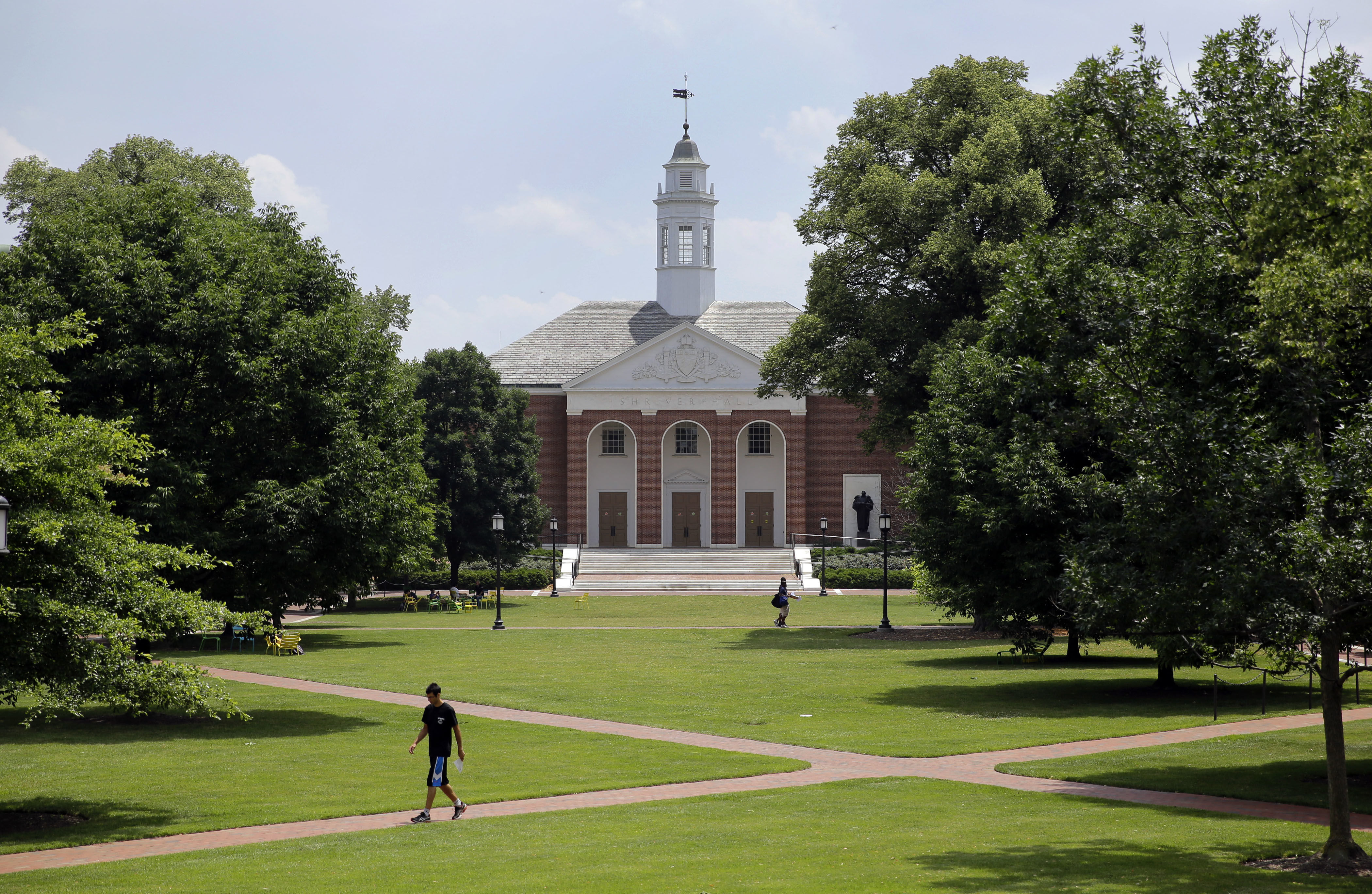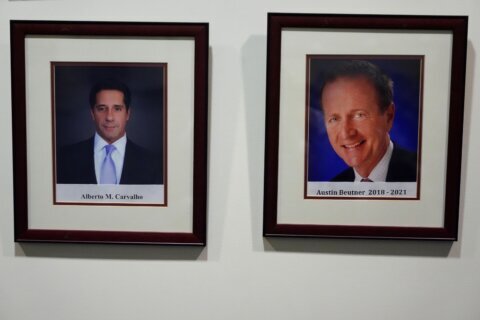
A plan to pause the formation of an armed police force for three Baltimore campuses at the Johns Hopkins University does not go far enough, according to opponents.
They want the university to abandon its plans, and demonstrators took their demands to the home of university President Ron Daniels.
A coalition of students, alumni, staff and Baltimore community activists held a rally, marched and placed copies of a petition they said has 6,000 signatures at Daniels’ front door in Baltimore.
Mihir Chaudhary, an alumnus, said there’s a fear that an armed police force on campus would target Black and minority students.
Chaudhary, who said his heritage is South Asian, said, “I definitely feel less safe around police and authorities in the post-9/11 America because of racial profiling,” and added that it’s a big concern among Black and minority members of the coalition.
Chaudhary said there’s already plenty of security on campus. “If you take a walk on the Homewood campus (one of three Baltimore campuses), almost at every intersection they’ve deployed security forces — they’re very visible.”
Asked about Baltimore’s reputation for homicides and other violent crimes, Chaudhary said that because the university is in an urban setting “you have to take your standard precautions,” but added, “There are mechanisms in place for people to live safely in the city without adding a militarized police force onto our campuses.”
Earlier this month, Daniels and other members of the administration said in a statement that the school would delay its plan for a police force for two years in order to rethink “the appropriate boundaries and responsibilities of policing.”
In an emailed statement Monday afternoon, a Johns Hopkins spokesperson said the university’s goal is “to reduce as much as possible our reliance on sworn policing as a public safety strategy. During that time, we will not take further steps to implement a campus police department.”
The spokesperson added:
Johns Hopkins is already deeply involved in alternative approaches to reducing criminal violence in our city, including a contribution of $2 million to bring the nationally recognized Roca program to Baltimore to intervene on behalf of high-risk youths and the provision of faculty guidance for the work of Safe Streets Baltimore. We intend to continue and expand on those efforts in the years ahead.
Chaudhary dismissed the delay as a “public relations move.”
Johns Hopkins had to get legislation passed in Annapolis in order to get the authority to establish its own armed police force. It’s not clear whether abandoning the plan would require the school to return to Annapolis to do so.







